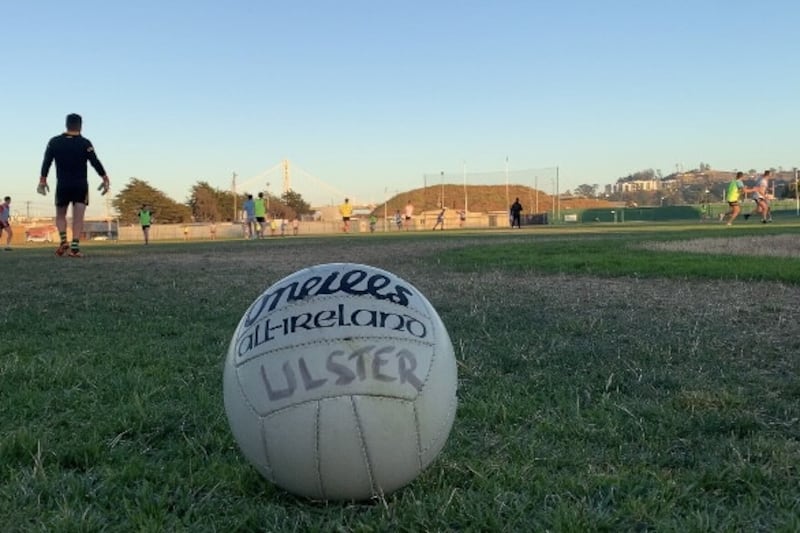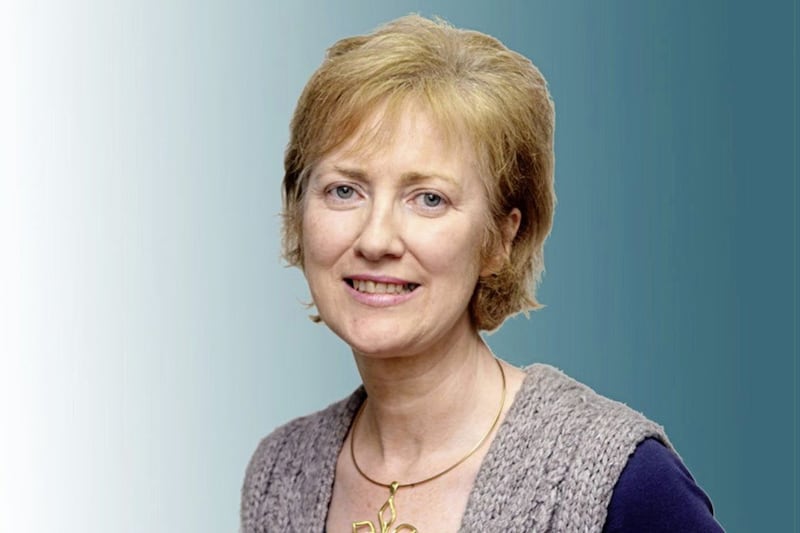JOE Duffy is embarking on a sad, solemn search in Northern Ireland, yet one that could provide some degree of comfort to people whose loved ones' stories have been overlooked.
The veteran broadcaster, host of RTÉ radio's hugely popular weekday phone-in show Liveline, is co-author of a planned book on The Children Of The Troubles, which with a fair wind is to be published in the autumn of next year.
Having added 'historian' to his already impressive CV, this, Duffy says, is an "entirely separate project" from his acclaimed book two years ago which focussed on the children killed during the Easter Rising of 1916.
The positive reaction to Children Of The Rising, which resulted in headstones being placed on the graves of two children which had not been marked, is what he singles out as the high point of his long career.
"I have an interest in children, perhaps as a result of my years of being a social worker and probation officer," he tells me. "That's where the idea for the Easter Rising children came from, I suppose. Most people didn't realise there even were children killed during that period."
Duffy is working with Derry-based journalist Freya McClements on the Northern Ireland book, which began life as a proposal for a television programme. With at least, he says, 180 stories to tell, he describes the undertaking as a "gargantuan task".
In their research, he and McClements have found that proper records were not kept regarding some child deaths resulting from the Troubles.
"We have not completed this work yet and already we are finding a number of children whose deaths were not recorded. There are possibly another 40 children over and above the official records," he says.
"In some cases they were just not linked to the Troubles or not recorded or it could be because in some years there were just so many deaths. The worst were 1972 and 1973 when there were around 40 children killed.
"At that time I was just about 15 or 16 years old but I could not believe what was happening. We had 10 families who had agreed to take part in our proposal for a TV programme and they were all very supportive. They wanted their stories to be told."
The basis for the book is Lost Lives, the 1,600-page tome by northern journalists David McKittrick, Seamus Kelters, Brian Feeney and Chris Thornton that lists the names and circumstances of those killed in the Troubles, to which Duffy pays enormous tribute. "Lost Lives is the seminal, iconic work. Every book written in the last 20 years is standing on the shoulders of that book," he says.
"But even Lost Lives treats the deaths of the children largely in the same way as the deaths of everyone else."
He adds: "I really wanted to tell the stories of the individual boys and girls. What were their interests? What were they like? What school did they go to? What games did they play? And how did these awful things happen to them?"
Duffy denies that this book, or the last, are in any way exploitative of children. Neither are the projects about blame – rather the aim is simply to commemorate and honour these children who have been largely forgotten but who were part of our history.
"Why was the world obsessed with what was happening to the children in the underground caves in Thailand? It is a basic humanitarian instinct, to take care of our children," Duffy says.
He has three of his own, grown-up triplets Ellen, Sean and Ronan, who are now 23 and still live with him and their mother June Meehan in Dublin's north side.
He tells of one family who made contact with him shortly before our meeting.
"They asked, 'Will you tell the story of what happened to our nephew?' and 'Will you spell the name correctly?'" he tells me.
"It turns out that for 40 years his surname had been spelt wrongly, in all the papers and so on, and it just carried on that way. So we can put that right."
The book will be published to coincide with the 50th anniversary of the death of the first child killed during the Troubles – Patrick Rooney, who died in Divis in Belfast in August 1969.
Patrick was nine when he was hit by a bullet fired by a police offier from outside on the street. It was 30 years before his father, Neely, told the full story of how he blamed himself because Patrick had been left standing against a wall in his house.
Other families are being invited to get in touch with the Children of the Troubles project to tell their loved ones' stories.
"We wish to make contact with every family who lost a child as a result of Troubles, to give them the opportunity to take part in the book, and to share information, photographs and memories of Northern Ireland's lost children,” Duffy says.
The firm cut-off point, however, is 16 years of age. Duffy said he had felt some pressure to include everyone up to the age of 18, "but the fact is we just did not have the resources to do that".
A native of Ballyfermot, a suburb in west Dublin, the veteran journalist and commentator sees the greatest social change of the past 20 to 30 years in Ireland as being how people have been able to legitimately challenge the great institutions, such as the Catholic Church.
Ireland is a "much, much" better country than it was one or two generations back, he says.
"I would call myself a Christian – perhaps not capital 'C', but I would just try to remain a basic humanitarian and ask myself, am I being a good neighbour and good member of my community?"
Duffy, who has hosted a religious radio programme called The Spirit Level, has been earmarked to anchor RTE's radio coverage of the Pope's visit next month – "I have a good face for radio," he jokes – although, when I ask him, he tells me he supports the right of people to hold protests against the visit.
However, those who applied for tickets only to destroy them so that others could not attend the various events he dismisses as "dopey". And he laughs at the suggestion that the younger, student union president Duffy might himself have taken to the streets in protest. "That was 40 years ago," he says.
Indeed, these days Duffy admits – to a degree – being embarrassed by the level of his salary, reported as €378,000, though he is also defensive about it.
"I am on a contract, which could terminate at any time. I don't get sick pay, or a pension. I have been offered more – much more – to go elsewhere but I wanted to stay [at RTÉ]. "
Duffy, who first joined RTÉ as a producer before becoming a reporter on The Gay Byrne Show, has now hosted Liveline for 17 years. Latest figures reveal that the show garners a daily audience of 373,000, second only to Morning Ireland, which has 423,000 listeners.
He is unaware what the figure for Northern Ireland is – the show gets input from northerners, who text and call in – but keeps abreast of the competition, tipping his cap to phone-in personalities including Stephen Nolan and the "late, great gentleman" Gerry Anderson.
Does he have plans to retire?
"No, absolutely none. Not as long as I have my health," he tells me.
The 62-year-old still cites his mother Mabel's dictum. "She always said: 'You're never as good as they say you are. Don't lose the run of yourself.' I live by that."
:: Families are invited to get in touch with the Children Of The Troubles project by emailing childrenofthetroubles@gmail.com or calling 0772 4005 667 or +353 (0) 87 699 0702.








